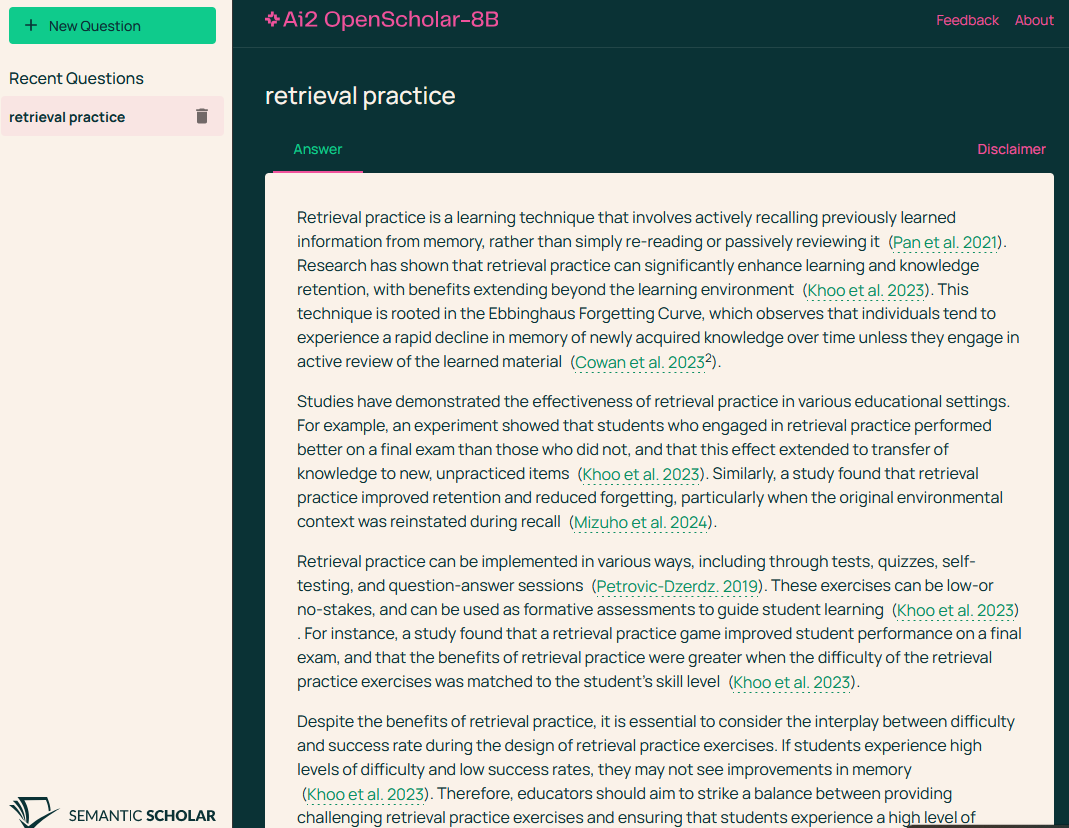OpenScholar: A Tool for Educators #EduSky #AI #RetrievalPractice
This looked intriguing…
A new artificial intelligence system, called OpenScholar, is promising to rewrite the rules for how researchers access, evaluate, and synthesize scientific literature. Built by the Allen Institute for AI (Ai2) and the University of Washington, OpenScholar combines cutting-edge retrieval systems with a fine-tuned language model to deliver citation-backed, comprehensive answers to complex research questions. source
Access OpenScholar
Consent to Use Data or Opt Out
I loved this message about data usage consent. Very considerate, no?
Consent to data collection
By using Ai2 OpenScholar, you agree to the Privacy Policy, Terms of Use, Responsible Use, and that you will not submit any sensitive or confidential info.
Ai2 may use your prompts and inputs in a public dataset for future AI research and development. You can still use this tool if you opt-out.
A Quick Search
One topic that’s pretty popular is retrieval practice. I typed it and here’s what I got:

Although I’ve read some other articles and info about this topic, I confess that I’d never heard of the Ebbinghaus Forgetting Curve!
Retrieval practice is a learning technique that involves actively recalling previously learned information from memory, rather than simply re-reading or passively reviewing it (Pan et al. 2021). Research has shown that retrieval practice can significantly enhance learning and knowledge retention, with benefits extending beyond the learning environment (Khoo et al. 2023). This technique is rooted in the Ebbinghaus Forgetting Curve, which observes that individuals tend to experience a rapid decline in memory of newly acquired knowledge over time unless they engage in active review of the learned material (Cowan et al. 20232).
Give it a spin! Access OpenScholar